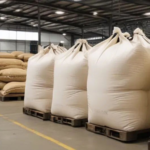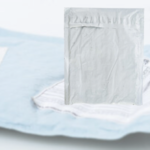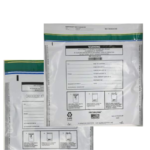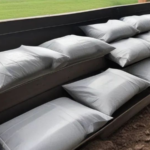
Should Pharmacy’s Use Tamper Evident Bags for Controlled Substances?
Long before Felicity Huffman was famous for the college admissions scandal, she played a Desperate Housewife addicted to her kid’s ADHD medicine and Edie Falco played a nurse addicted to pain meds in the show Nurse Jackie. While this may seem like just a bit of Hollywood fodder, these situations are playing out everyday all around the world. The National Institute on Drug Abuse states that 48 million people ranging in age from 12 and up have admitted to taking prescription drugs for non-medical reasons. This computes to 20% of the US population. Shockingly, the American Nurses Association estimated that one in 10 nurses abuse drugs or alcohol. The amount of prescription opioids sold in the US has quadrupled since 1999 according to the CDC. There is so much access to these drugs that they are easily stolen and used by people who are not prescribed them. Yet, these drugs can be picked up at a pharmacy with very little to no security measures in place.
Prescription drugs, specifically opioids used for pain management, central nervous system depressants used for anxiety and sleep disorders, and stimulants used for treatment of ADHD and narcolepsy are all considered “controlled substances”, and are the main drugs abused by addicts. Some pharmacies have no age limit or security measures in place for who can pick up these prescriptions. Generally, if you have the person’s name, date of birth and address, you will be handed over a non-sealed or paper bag full of highly addictive medication with no questions asked. Some pharmacies and/or states require a driver’s license to be shown at the time of pickup, however, it does not need to match the name of the person on the prescription or their address. Therefore, what is to stop the person picking up your prescription meds at the pharmacy from taking a few pills out of the bottle without your knowledge? Or going a step further, what is stopping a pharmacy technician from helping themselves to some of your medication after the prescription has been filled, and before you pick it up? This happens way more often then you may even know.
Tamper Resistant Packaging in Pharmacy to Prevent Mishandling
One example is a pharmacy tech in Ohio who was discovered to be “accidentally” dropping people’s prescriptions on the floor right before cashing them out and would then steal a few pills and pocket them while kneeling on the floor behind the counter. These stories are extremely common and could be solved easily by using a tamper-evident bag for prescription medications, or at the very least, for controlled substances. Most pharmacies require a double count on all medication, so if after the double count, the medication was then placed in a tamper evident sealed bag, it would be clearly visible if someone had tried to or did open the bag before it was received by the person it was prescribed to. While this may not solve the addiction epidemic or employee theft of prescription medications, it can protect consumer’s prescriptions from being tampered with, and allow the patient peace of mind that all their medication they are supposed to be receiving is in the bottle.
When you go to the drugstore or supermarket and go up and down the medicine aisles, all the medications have tamper-evident seals on the bottle.Some cold medicines and medicines known to contain addictive substances or substances used to create other drugs, are now kept behind the pharmacy counter in sealed packages and require ID to be shown to purchase them. So why would it then make sense that “controlled substances”, that have been proven to have highly addictive properties, are handed over to just about anybody that has a few details about the person who has the prescription and have no clear tell signs if they have been tampered with or not?
Sources Used For this Article:
Centers for Disease Control and Prevention. (2016, June 21). Prescription Opioid Overdose Data. Retrieved fromhttp://www.cdc.gov/drugoverdose/data/overdose.html
Drugrehab.com. Prescription Drug Abuse. Retrieved fromhttps://www.drugrehab.com/addiction/prescription-drugs/
Drugrehab.com. Nurses and Addiction. Retrieved fromhttps://www.drugrehab.com/addiction/nurses/
Webmd.com. Prescription Drug Abuse. Retrieved fromhttps://www.webmd.com/mental-health/addiction/abuse-of-prescription-drugs#1
The Columbus Dispatch. Employees Stealing Drugs from Ohio Pharmacies, health care facilities.Retrieved fromhttps://www.dispatch.com/content/stories/local/2016/04/17/employees-stealing-drugs-from-pharmacies-health-care-facilities.html?fb_comment_id=1031458613588802_1031596473575016
Share:
Get A Quick Quote
Social Media
Most Popular
Categories
Tags
Related Posts
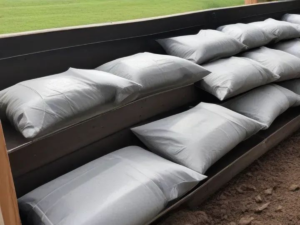
The Ultimate Guide to Organizing and Storing Soil Bags
If you’re a gardening enthusiast, you know how important it is to have good-quality soil for your plants to thrive. Soil bags, whether they be
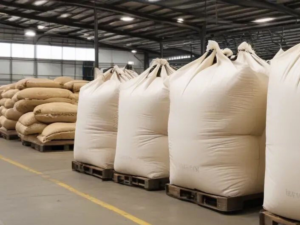
A Guide to Utilizing Bulk Bags in Agriculture: Making Farming Effortless
Bulk bags or flexible intermediate bulk containers (FIBCs) are one of the important tools used in farming practices. These large, sturdy bags offer a range
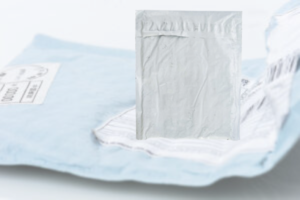
Clear Poly Mailer Bags: The Ultimate Shipping Upgrade
Shipping is a challenging aspect in the world of e-commerce. Some products like glass items, electronics, and artwork are more fragile than others. As a

